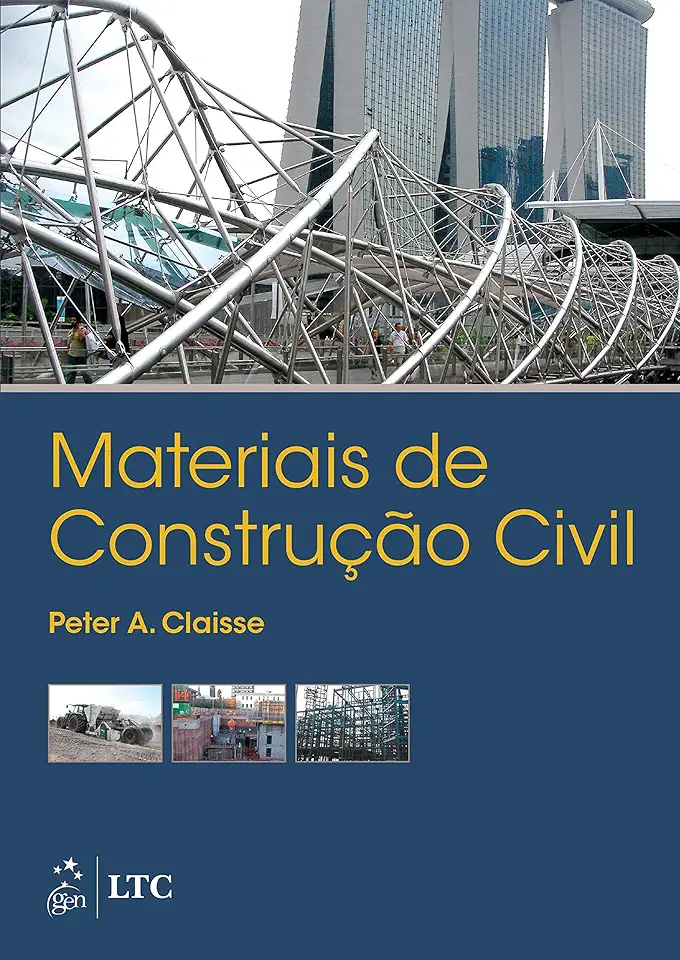
Civil Engineering Materials - CLAISSE, Peter A.
Civil Engineering Materials: A Comprehensive Guide for Engineers and Contractors
Introduction
Civil engineering materials are the foundation of any construction project. From roads and bridges to buildings and dams, the materials used in civil engineering projects must be strong, durable, and reliable. In this comprehensive guide, Peter A. Claisse provides a detailed overview of the most commonly used civil engineering materials, including their properties, applications, and advantages and disadvantages.
Materials for Concrete
Concrete is one of the most widely used civil engineering materials, and for good reason. It is strong, durable, and relatively inexpensive. However, concrete is also a complex material, and the properties of concrete can vary depending on the materials used and the mix design. In this chapter, Claisse discusses the different types of concrete, the materials used to make concrete, and the factors that affect the properties of concrete.
Materials for Masonry
Masonry is another common civil engineering material, and it is often used in conjunction with concrete. Masonry is made from individual units, such as bricks, stones, or blocks, that are bonded together with mortar. In this chapter, Claisse discusses the different types of masonry units, the different types of mortar, and the factors that affect the properties of masonry.
Materials for Steel Structures
Steel is a strong and versatile material that is used in a wide variety of civil engineering projects. Steel is often used in the construction of bridges, buildings, and other structures that require high strength and durability. In this chapter, Claisse discusses the different types of steel, the properties of steel, and the factors that affect the performance of steel in civil engineering applications.
Materials for Timber Structures
Timber is a natural material that has been used in construction for centuries. Timber is strong, durable, and relatively inexpensive. However, timber is also susceptible to rot and decay, and it must be treated to protect it from these elements. In this chapter, Claisse discusses the different types of timber, the properties of timber, and the factors that affect the performance of timber in civil engineering applications.
Materials for Geotechnical Applications
Geotechnical engineering is the branch of civil engineering that deals with the behavior of soil and rock. Geotechnical engineers use a variety of materials to improve the properties of soil and rock, such as geotextiles, geogrids, and geofoam. In this chapter, Claisse discusses the different types of geotechnical materials, their properties, and their applications.
Materials for Water Resources Applications
Water resources engineering is the branch of civil engineering that deals with the management of water resources. Water resources engineers use a variety of materials to construct dams, reservoirs, canals, and other water resources infrastructure. In this chapter, Claisse discusses the different types of water resources materials, their properties, and their applications.
Materials for Transportation Applications
Transportation engineering is the branch of civil engineering that deals with the planning, design, and construction of transportation infrastructure. Transportation engineers use a variety of materials to construct roads, bridges, airports, and other transportation infrastructure. In this chapter, Claisse discusses the different types of transportation materials, their properties, and their applications.
Conclusion
Civil engineering materials are essential to the construction of any civil engineering project. By understanding the properties and applications of different civil engineering materials, engineers can select the best materials for their projects and ensure that their projects are safe, durable, and cost-effective.
Why You Should Buy This Book
If you are a civil engineer, contractor, or anyone else who is interested in civil engineering materials, then this book is a must-have. This comprehensive guide provides a detailed overview of the most commonly used civil engineering materials, including their properties, applications, and advantages and disadvantages. With this book, you will be able to select the best materials for your projects and ensure that your projects are safe, durable, and cost-effective.
Order Your Copy Today!
Don't miss out on this essential resource. Order your copy of Civil Engineering Materials today!
Enjoyed the summary? Discover all the details and take your reading to the next level — [click here to view the book on Amazon!]